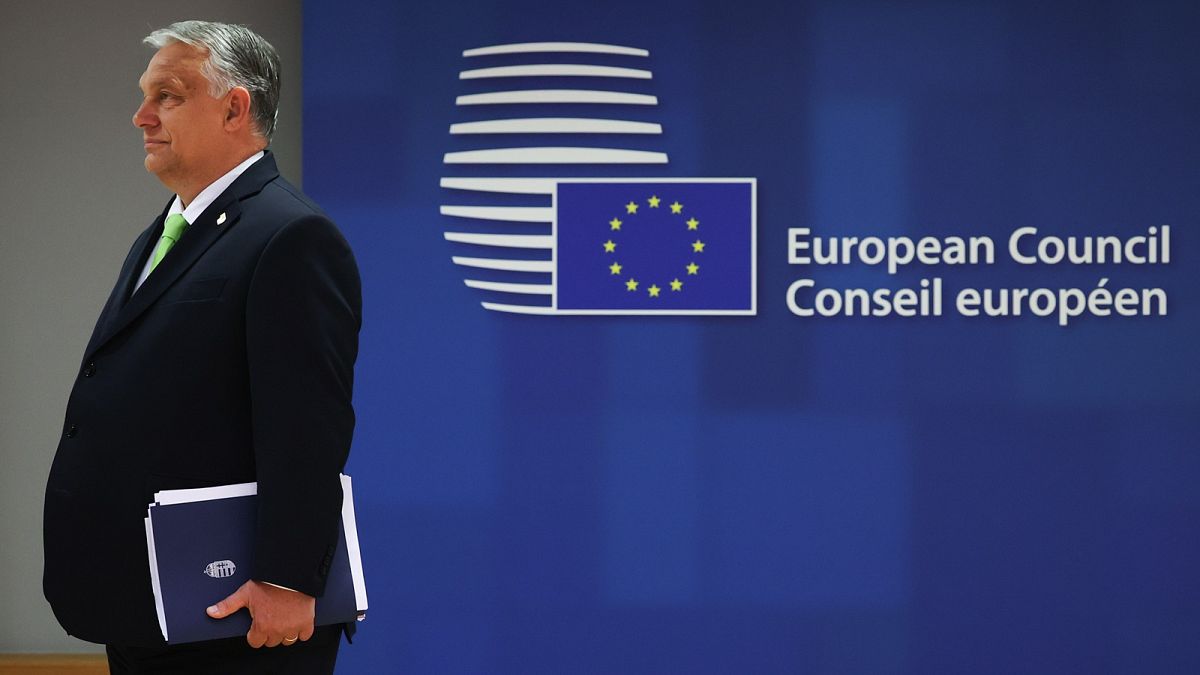Poland and Hungary made good on their promise to prevent the European Council from adopting joint conclusions on migration.
The two countries, which have long held hard-line views on the reception and relocation of asylum seekers, put their foot down after long and intense discussions among the 27 heads of state and government.
The blockage, which began on Thursday and continued all through Friday, forced leaders to delete the migration section from the summit's conclusions, wiping out several paragraphs that had been widely anticipated.
Charles Michel, the president of the European Council, issued instead a separate statement on his behalf, recycling wording from the rejected draft.
"There wasn't unanimity, but there was a great deal of convergence, which was not at all there just a few years ago," Michel said in a press conference.
"We got 25 out of 27 countries."
The Polish-Hungarian opposition stems from a major deal struck earlier this month in Luxembourg, where home affairs ministers agreed to move forward with a proposed reform of the EU's migration policy.
The overhaul, which stills need to be negotiated with the European Parliament, is based on a new system of "mandatory solidarity" and offers member states three options to collectively deal with migration flows:
- Accept a number of relocated asylum seekers.
- Pay €20,000 for each rejected applicant.
- Finance operational support, such as infrastructure and personnel.
Warsaw and Budapest have harshly criticised the framework, falsely claiming it would impose compulsory quotas on the distribution of asylum seekers.
Polish Prime Minister Mateusz Morawiecki said the solidarity mechanism amounted to "coercion" and would lead to "financial penalties" for his own country.
"That is why we cannot agree to such conclusions and that is why we remain of the opinion that the best solution here is a referendum," Morawiecki said on Friday morning, before heading into the meeting.
"We have no intention of implementing these decisions," said his Hungarian counterpart, Viktor Orbán, who spoke against the creation of "migrant ghettos."
Besides the content of the migration reform, Poland and Hungary resent the fact the deal, the first breakthrough of its kind in almost a decade, was adopted by a qualified majority, a voting rule that automatically deprived them of any veto power.
But in the European Council, where conclusions are endorsed by consensus, their grievances were strong enough to single-handedly edit down the final text, which was mostly focused on the external, rather than the internal, dimension of migration.
"Throughout these six or seven hours (of debate), I was constantly surprised by the narrow-mindedness of some countries," Pedro Sánchez, the Spanish prime minister, said at the end of the meeting.
German Chancellor Olaf Scholz appeared unperturbed by the Polish-Hungarian demand that all migration and asylum files be approved by strict unanimity, a requirement that is not foreseen under the EU treaties.
"I have fundamental confidence that what was agreed by all parties will be respected by all parties," said Olaf Scholz, the German chancellor, when asked about the opposition. "I'm not too concerned."
